
MBTAAnalysis: A look inside the MBTA
0 Comments
/
The MBTA shuttles over a million passengers a day around Greater…
 https://pioneerinstitute.org/wp-content/uploads/CloseupClock-1.jpg
739
1244
Mary Connaughton
https://pioneerinstitute.org/wp-content/uploads/logo_440x96.png
Mary Connaughton2017-02-20 12:34:192017-02-21 09:47:58The Clock is Ticking…….
https://pioneerinstitute.org/wp-content/uploads/CloseupClock-1.jpg
739
1244
Mary Connaughton
https://pioneerinstitute.org/wp-content/uploads/logo_440x96.png
Mary Connaughton2017-02-20 12:34:192017-02-21 09:47:58The Clock is Ticking…….
At a Glance: Who Moved to Massachusetts in 2022?
State-to-state migration can have serious impacts on the local economy. Migrants to Massachusetts come from all over the country, but significant portions of both new taxpayers and new taxable income come from just a few sources, such as New England, New York, Florida, and California.
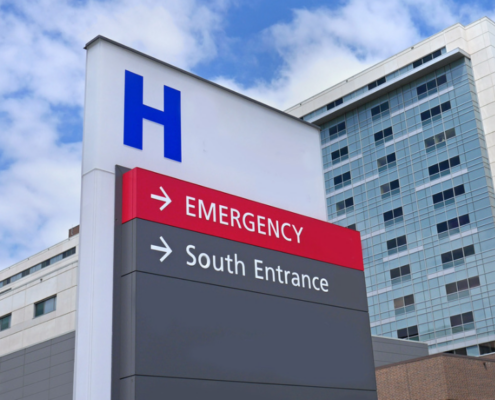
Do No Harm to the Health Policy Commission
With only weeks left in the Massachusetts legislative calendar,…
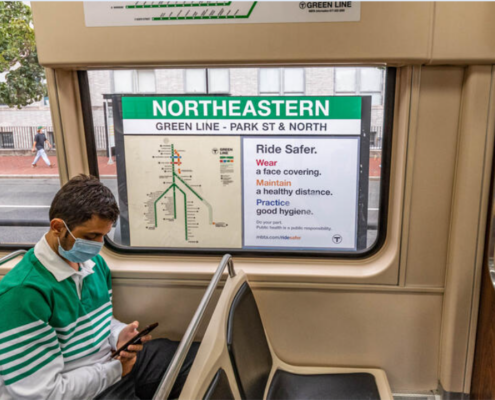
How Public Transportation’s Efficiency Changed During Covid
The MBTA's efficiency plummeted during Covid; as people chose either personal transportation or personal work, the MBTA lost significant ridership. However, it maintained its vehicle fleet and the depth of its services even as its operating cost per passenger mile increased dramatically.

Is Free Community College What Massachusetts Needs?
The Massachusetts Senate proposed making community college tuition free for all residents of the Commonwealth as part of its FY2025 budget. Pioneer explores whether this program is what Massachusetts needs to prepare its residents for gainful employment and how it interacts with the state's extensive workforce development infrastructure.

Unemployment in Massachusetts by Race
Unemployment rates vary based on racial groups. Most minority groups face higher unemployment rates in Massachusetts than the majority White population.

The Housing Crisis has a Hand in Massachusetts Out-migration Trends
Recently published IRS data shows that net out-migration from…

Latest IRS Migration Data Show Exodus from Massachusetts Continues
Massachusetts shed more than double the amount of adjusted gross income (AGI) in 2022 than any year prior to 2020, making it fifth among states in net AGI out-migration behind only California, New York, Illinois and New Jersey, according to data released Thursday by the Internal Revenue Service.
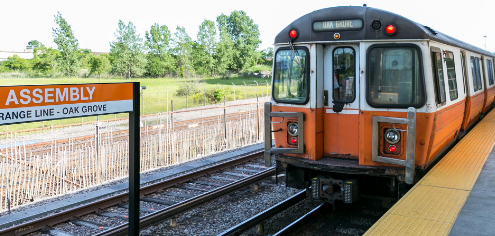
The MBTA’s Aging Infrastructure: Improvements have Failed to Materialize for the T
Reform for the MBTA has long been a priority for Massachusetts government. However, the MBTA still struggles to grow its ridership and revenue, as its infrastructure grows increasingly in need of repair.

Cape Cod Restricts Fourth of July Parties: What’s the Economic Impact?
With Fourth of July parties getting out of hand in recent years, Dennis Police established measures to limit the number of beachgoers this year. This may have an impact on Dennis economically, but it is a choice Dennis feels is worth making.
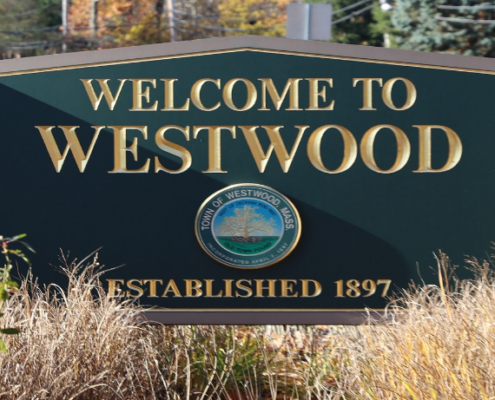
What makes these five so-called “W” towns so appealing?
Learn about what makes these five Massachusetts "W" towns so desirable to live in, but also the costs associated with them.
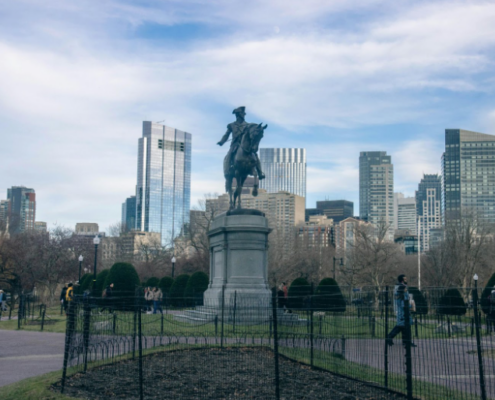
Part II: Push and Pull Factors for Massachusetts Businesses
High UI tax rates make it expensive for businesses to operate in Massachusetts. Learn what affects a company's decision to operate in Massachusetts.

Mayor Wu’s Office to Residential Conversion Pilot Program Prioritizes Downtown Revitalization over Housing Production, Fiscal Responsibility
In July 2023, in response to a soft post-COVID office market…

Northwest Massachusetts’ Reliance on Industry Levies
Some towns in NW Massachusetts spend significantly more per capita than their neighbors, without using methods such as large state funding, deficit spending, and high taxes. These towns gain significant portions of their revenue from industry tax levies.

Examining the Academic Achievement Decline in New England Prior to COVID-19
COVID-19 was not the beginning of student performance declines in the United States. Academic achievement for students across the country began to drop-off following the widespread implementation of the Common Core curriculum in 2013. While declines have occurred across the country, New England has experienced a particularly sharp decrease in student achievement.
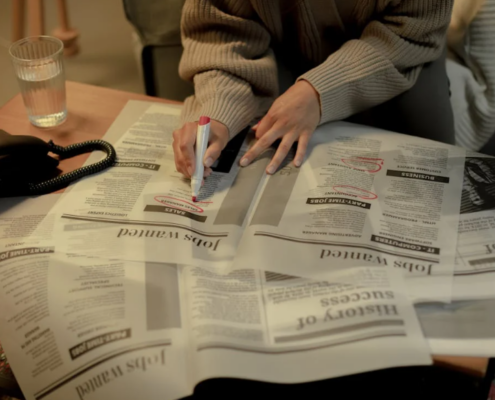
Part I: It May Be Better to Be Unemployed in Massachusetts than in Connecticut or New Hampshire
Connecticut, Massachusetts, and New Hampshire all rank among…

Puzzling “Relationship” Between Police Expenses and Crime Rates in Middlesex County
Some people may assume that there is a correlation between how much a town spends on their police and the crime rates in that town. But for certain towns in Middlesex County, there does not seem to be a clear connection between police expenses and crime rates. When stacked up against other towns in the county, there is a mismatch between how much money these towns spend on their police and their crime rates.
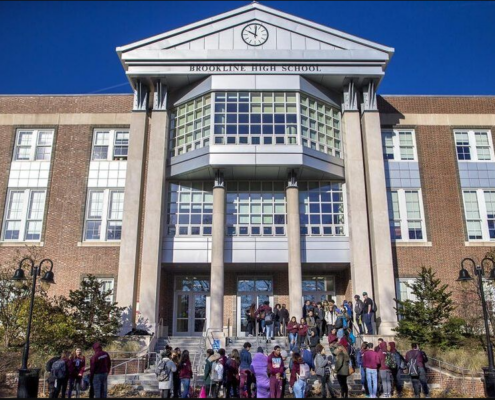
Why The Best Public Schools Are The Best
Massachusetts’ education system is famously excellent,…
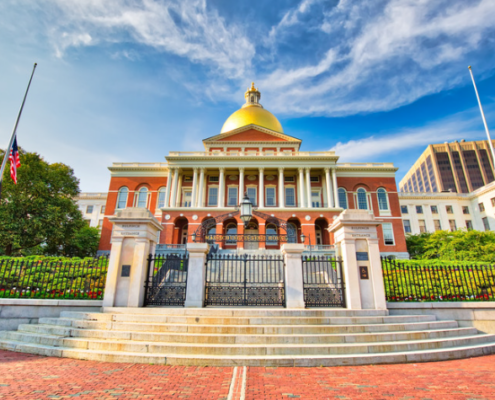
Massachusetts Legislature Procrastinates Once Again
There are less than seven weeks left to the Massachusetts Legislature’s…

Cape Cod: The Struggles of Year-Round Residents
Barnstable County contains all 15 Cape Cod municipalities. In…
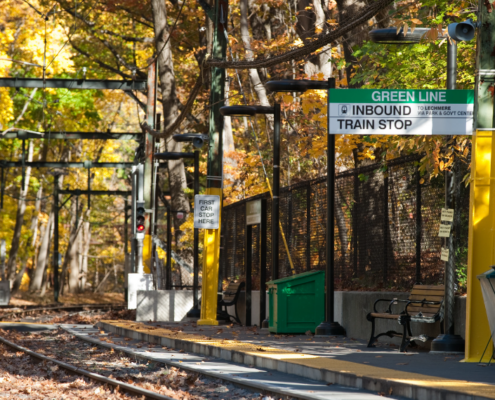
An Open Letter to the Governor’s Transportation Task Force
An Open Letter to the Governor’s Transportation Task Force:
As…

Thoughts on Outmigration and Competitiveness
?Thoughts on Out Migration and Competitiveness
A…

Commentary On The Senate Ways And Means Committee FY2025 Budget
The Senate Ways and Means Committee (SWM) released its FY2025 budget on May 7th. This spending plan totals $57.9 billion, an increase of $1.8 billion over the FY2024 General Appropriations Act (GAA). Like the Governor’s and House’s versions of the budget, the SWM budget is based on the consensus revenue estimate of $41.5 billion in tax revenue - a decrease of $208 million from last year’s consensus figure.

Statement: Pioneer Institute in Support of Accessory Dwelling Units
Pioneer Institute Statement in Support of Accessory Dwelling…
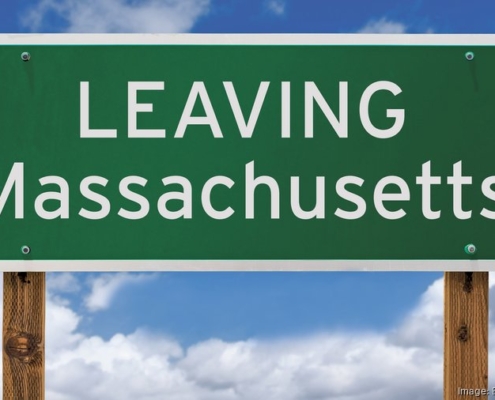
Outmigration and the Labor Force
Boston University researchers just released new demographic and…

Superior Court Judge Invalidates “Equity Theft” Law as Unconstitutional
Decision brings Massachusetts into compliance with 2023 U.S.…

Why the secrecy? Pioneer Calls for Open Meetings Dealing with Steward’s Impact on Patient Care.
Recently the Healey administration’s Department of Public health…
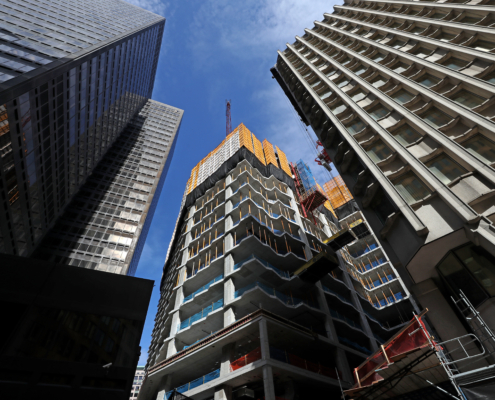
Mayor Wu’s Commercial Property Tax Proposal: A Solution or a Snuff?
Boston Mayor Michelle Wu is considering shifting more of the…

The Necessity of Transparent Tax Revenue Reporting: MA Provides a Shining Example
Revenue collections, predicted revenue, and expenditures are among the most important data points states report. Without accurate predictions and regular reporting, the legislature and governor's office may go over or under budget, potentially leaving citizens and policymakers in the dark about the fiscal health of the state.
For this reason, all states regularly report those numbers and update estimates based on trends, overall economic conditions, and expected changes as a result of new state policies. However, even among the New England states, the transparency and accessibility of such reporting varies greatly and, as a result, limits analysts’ ability to meaningfully compare state revenues and judge performance in real time.

Middlemen Pushing Up Retail Costs of Drugs
The reality is that non-price factors, including several players, are causing net prices to decline and retail prices to increase. Those players include employers, health plans, and pharmacy benefit managers (PBMs), all of whom have continuously circumvented the system through loopholes and complicated systems of reimbursement that tend to hurt patients
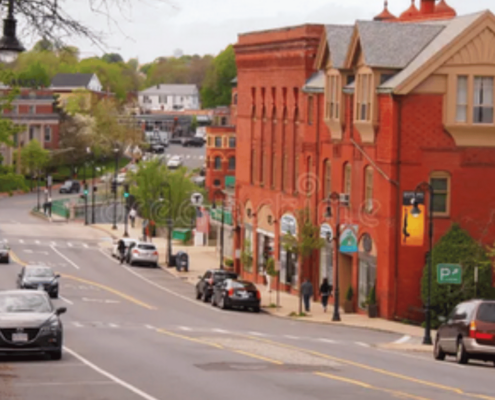
Milton Shuts the Door
on Multifamily Housing Plans
The MBTA Communities Act, passed in 2021, provides that the 177 communities serviced by the MBTA must create multifamily zones to spur housing development close to public transportation. But the issue is an emotionally charged one, with passions high on both sides. And Milton residents in February rejected a plan to create such housing ‚ choosing a loss of some state funding over an approximately 25 percent increase in their housing stock, along with the possibility of greater congestion.
on Multifamily Housing Plans
